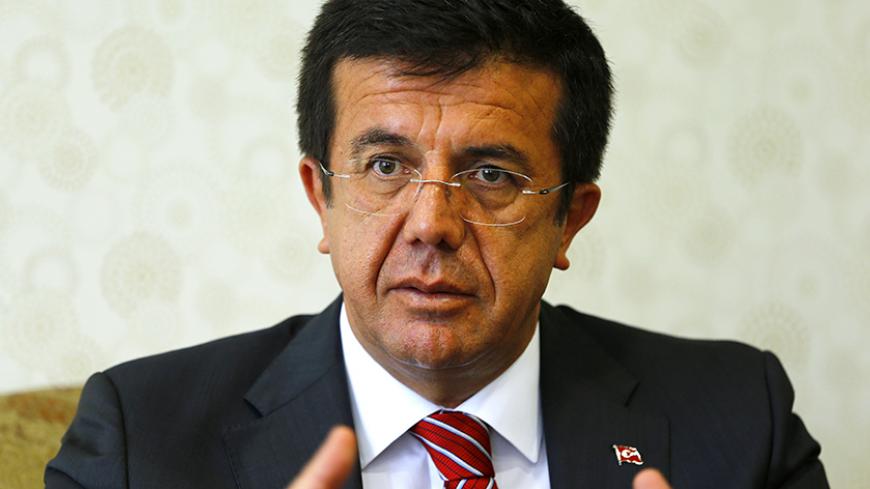Turkey’s government has become so obsessed with interest rates that it has come to resist rate hikes at the expense of much bigger financial troubles. The origins of the government’s theory of an "interest rate lobby" seeking to undermine the economy could be tracked to its Islamist roots and desire to install an interest-free banking system, illustrated by moves to expand the Islamic banking sector via public banks. And while encouraging interest-free banking, President Recep Tayyip Erdogan and the government have exerted both open and covert pressure on the Central Bank to lower interest rates.
In an interview in July, Economy Minister Nihat Zeybekci, a figure close to Erdogan, offered a clear illustration of how the government keeps the Central Bank under pressure. “A one-point rate hike means an additional burden of 5 billion Turkish lira for the country [on its foreign debt stock]. The Central Bank should put its thinking cap on. This is a usury rate. You can’t have production, investment or employment with such a rate,” Zeybekci told the Yeni Safak daily.



